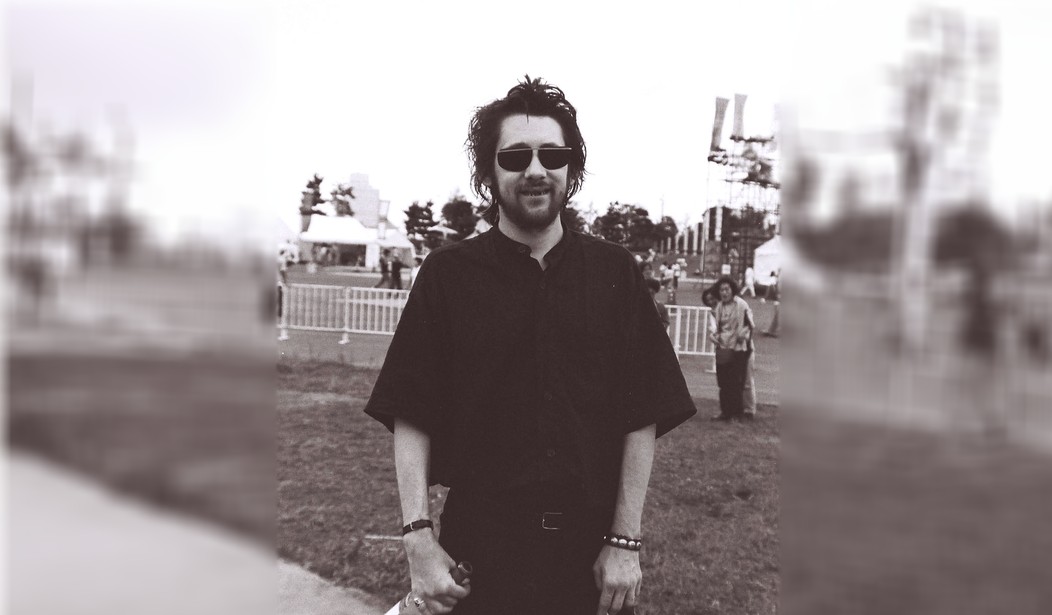To no one's great surprise, iconic Irishman Shane MacGowan has passed away far too young, at age 65. The man was enslaved to a dissolute lifestyle, but he made it work for him. As frontman for the legendary punk-trad band The Pogues, MacGowan's striking presence and distinctive growl were backed up with a gift for writing imaginative, transportive lyrics. When we speak of Ireland's rich heritage of poets, we often think of William Butler Yeats, James Joyce, or, contemporarily, Seamus Heaney. But Shane MacGowan was a star that unequivocally belongs in that constellation. Personally, I've always considered him to be a brilliant artist.
The band posted a death announcement on its official Instagram page:
The Pogues' best-known hit, "Fairytale of New York," took Ireland and the UK by storm in 1987, and to this day, it dominates the Irish pop charts every year at Christmastime to a degree that would make Mariah Carey envious. I say again, it's brilliant. It's an entire musical production, equal to West Side Story or Phantom of the Opera in its depth and range, packed into a soulful four-minute duet between MacGowan and the late Kirsty MacColl.
Naturally, the puritanical left-wing sissies who have invaded Ireland took issue with the frank language in the part of the song where the couple is arguing with one another. MacColl's character calls MacGowan's a "scumbag," a "maggot," and a "cheap lousy f****t," and he calls her "an old slut on junk." It's spicy and hilarious — and was way too gritty for the fun police.
"In 2007, Radio 1 removed the words 'slut' and 'f****t' from the song, backtracking when the move received criticism from the public and MacColl’s mother, who said censoring the words was 'too ridiculous'," the Independent reported. "However, in recent years more radio stations have chosen to play a censored version, mostly due to the homophobic context of the word 'f****t'."
“The word was used by the character because it fitted with the way she would speak and with her character," MacGowan explained for the crybullies who were too bound up with woke outrage to appreciate his art. "She is not supposed to be a nice person, or even a wholesome person. She is a woman of a certain generation at a certain time in history and she is down on her luck and desperate." He elaborated, "Her dialogue is as accurate as I could make it but she is not intended to offend! She is just supposed to be an authentic character and not all characters in songs and stories are angels or even decent and respectable. Sometimes characters in songs and stories have to be evil or nasty in order to tell the story effectively." The horror!
MacGowan's death hits hard at this turbulent time, too. He has been synonymous with the idea of Ireland for almost the entirety of my life, an Ireland that is now being subsumed under Euro-elite malice. EU lordlings now tell the Irish that they must set aside their Catholicism and slaughter their dairy cows, while they inundate the island nation with third-world colonists at a pace that makes England's "planters" seem tame. Is old Eire on course to follow MacGowan into the mists of time?
Related: Even in Death, Henry Kissinger Discombobulates the Left
Shane MacGowan was born on Christmas Day, 1957, in Kent, England, but he spent his formative years in County Tipperary, Ireland, with his mother's relations. It was there that he fell in love with his musical heritage.
MacGowan's wife of five years, Victoria Mary Clarke, posted a heartbreaking tribute on Instagram:
As we pray for Ireland's future (a sad parallel to our own country's peril), the loss of Shane MacGowan is that much more of a gut punch. I fight the nagging worry in the back of my mind — Maybe Shane was brilliant once again and got out just in time — and declare that MacGowan's nonpareil music, along with Ireland's indomitable spirit and character, will live on forever.
Merry Christmas, happy birthday, and rest in peace, Shane MacGowan. You were a real one.
EDITOR'S NOTE: An earlier version of this article attributed the song "Thousands Are Sailing" to Shane MacGowan. In fact, it was written by Phil Chevron (although MacGowan sang it masterfully). We removed the incorrect information and regret the error.










Join the conversation as a VIP Member